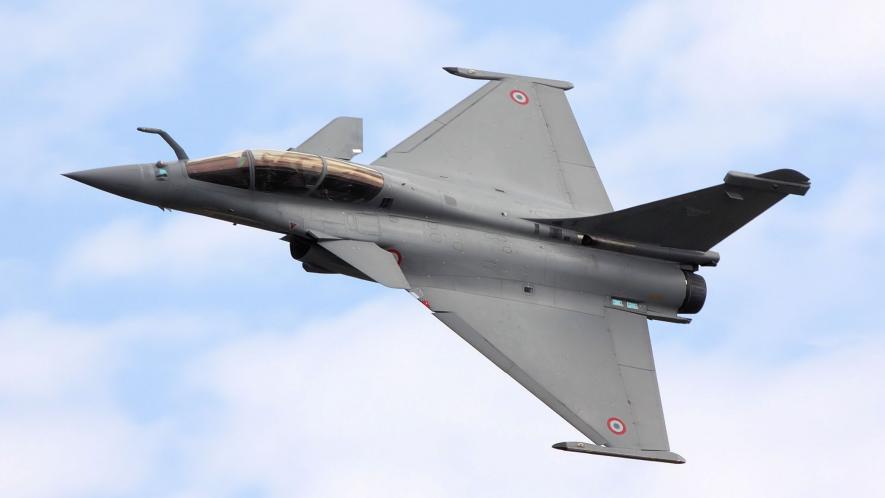BJP Government's Policies Undermine Self-reliance in Defence

The Ministry of Defence's Department of Defence Production has been bringing out booklets loudly declaring its objective of self-reliance, but the policies being pursued by the BJP government are threatening to undermine that objective.
After the BJP came to power in 2014, the central government has taken a number of measures which would weaken the productive capacity built up by India in its public sector defence industries, including Defence Public Sector Undertakings (DPSUs) and Ordnance Factories.
The government has reportedly decided not to make any further investments in ordnance factories and in DPSUs, and also moved to sell government stake in major DPSUs like Hindustan Aeronautics Limited (HAL) and Bharat Dynamics Limited (BDL).
Deliberately weakening the ordnance factories
The ordnance factories, working under the aegis of the Ordnance Factory Board (OFB), are sought to be further weakened by outsourcing the products that it had been manufacturing until now to private players. For this purpose, so far 275 items that were being manufactured by ordnance factories have been reclassified by the government as "non-core".
To begin with, 143 items which were being manufactured by Ordnance Factories were re-categorised as "non-core items" in April 2017. Later in November 2017, 93 troop comfort items of the Indian Air Force and the Indian Navy were added to this list, and on 16 January 2018, another 39 items were declared "non-core".
The defence civilian employees' unions have been maintaining that terming a defence product as "non-core" is wrong in the first place.
Several essential components of missiles and other weapons feature in the list of items that have now been categorised as "non-core". There are many items of ammunition, 12 types of ammunition boxes, three types of bombs, three types of bomb bodies, seven types of empty shells, and two types of binoculars in the list. All of these confirm the unions' argument that the move to classify these items as "non-core" is a dubious one.
A large number of the 275 items are troop comfort items manufactured by the Ordnance Equipment Factories (termed the OEF Group of Factories). These include items such as uniform cloth, haversacks, gloves, blankets, jackets, boots and extreme climate clothing.
Defence employees have been arguing that there have been complaints of poor quality when the Indian Army has purchased dresses and uniforms from private sources in the past.
They also say that procuring troop comfort items from private sources would pose a security threat.
“Troop comfort items manufactured by the OEF Group of Factories are of high quality and such quality items can never be procured by the Army from the open market, which will cause a serious security threat,” the Struggle Committee of Defence Civilian Employees to Save Defence Industry consisting of the three major defence civilian employees’ unions said in a letter it sent to the Defence Minister on 16 October 2017.
“The Army Logo uniform cloth for which OFB is having the registered patent is being supplied by private mills to petty textile shops which gives an open access to terrorists and anti-nationals to purchase army uniform cloth from the market and misuse the same for their terrorist activities. The manufacturer of the Army Logo cloth required for Ordnance Factories for manufacturing the strategic uniforms is also illegally supplying the same to the textile shops located near border areas, such as Sri Ganganagar [Rajasthan], Ludhiana, Pathankot, various other parts of Punjab, and Jammu, which might result in a big disaster for the country. It is understood that these textile shops are selling more than 1 lakh metres of Army Logo Cloth every month. This is a glaring example of private firms minting money by selling defence items at the cost of national security,” the letter said.
The defence production policy, as quoted in the booklet titled “Marching Towards Self Reliance” brought out by the Department of Defence Production in July 2017 claims:
"The objectives of the Policy are to achieve substantive self-reliance in the design, development and production of equipment / weapon systems / platforms required for defence in as early a time frame as possible; to create conditions conducive for the private industry to take an active role in this endeavour; to enhance potential of SMEs in indigenisation and to broaden the defence R&D base of the country."
Apart from the basic issue of the danger of the military-industrial complex with the rise of defence production by the private sector, the fact of the matter is that the private sector in India is singularly ill-equipped for defence production. Indian private companies engaged in defence production are marginal players compared to foreign Original Equipment Manufacturers (OEMs), and are far less qualified than India’s DPSUs. The result would be increased prominence for foreign companies in defence production, especially given Narendra Modi’s claim that India has “one of the most liberal FDI policies for the defence sector in the world” (this is the claim made by the Prime Minister in his message given as preface to the booklet mentioned above).
But all these have not stopped the BJP government in striking dubious deals that benefit India’s private corporate behemoths, as was seen in the Rafale Deal, where the Anil Ambani-led Reliance Defence was chosen as the French OEM Dassault’s Indian strategic partner while the public sector HAL was wilfully kept out
Get the latest reports & analysis with people's perspective on Protests, movements & deep analytical videos, discussions of the current affairs in your Telegram app. Subscribe to NewsClick's Telegram channel & get Real-Time updates on stories, as they get published on our website.
























